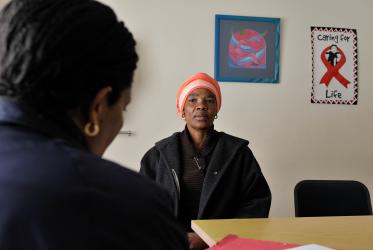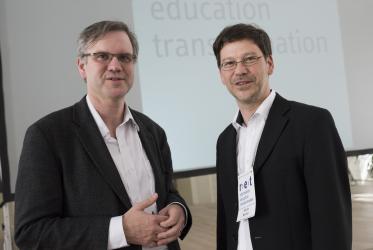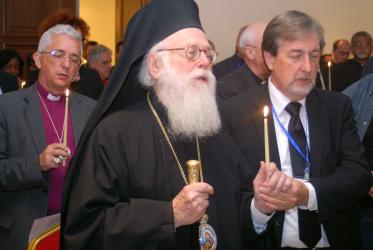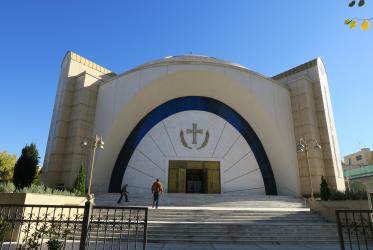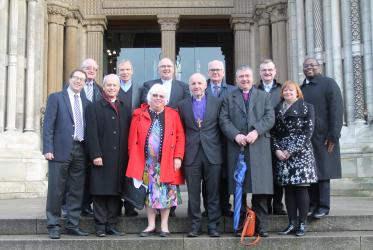Displaying 121 - 140 of 164
Hielke Wolters: Apostle of mission strategies
01 August 2016
Facilitating peace with passion
26 July 2016
Local work by faith-based groups key to ending AIDS
27 June 2016
Winners of WCC photo contest announced
09 May 2016
WCC convenes strategic meeting on sustainable development goals
11 February 2016
Fleeing from – rather than to – a place
10 February 2016
Bossey students on their way to future of ecumenism
10 February 2016
Rebuilding a smashed church in Albania
23 December 2015
Orthodox church in Albania resurrected
23 December 2015
In Albania, churches’ share of health care has grown in new era
23 December 2015
WCC delegation visits north Ireland and border barriers
02 December 2015



